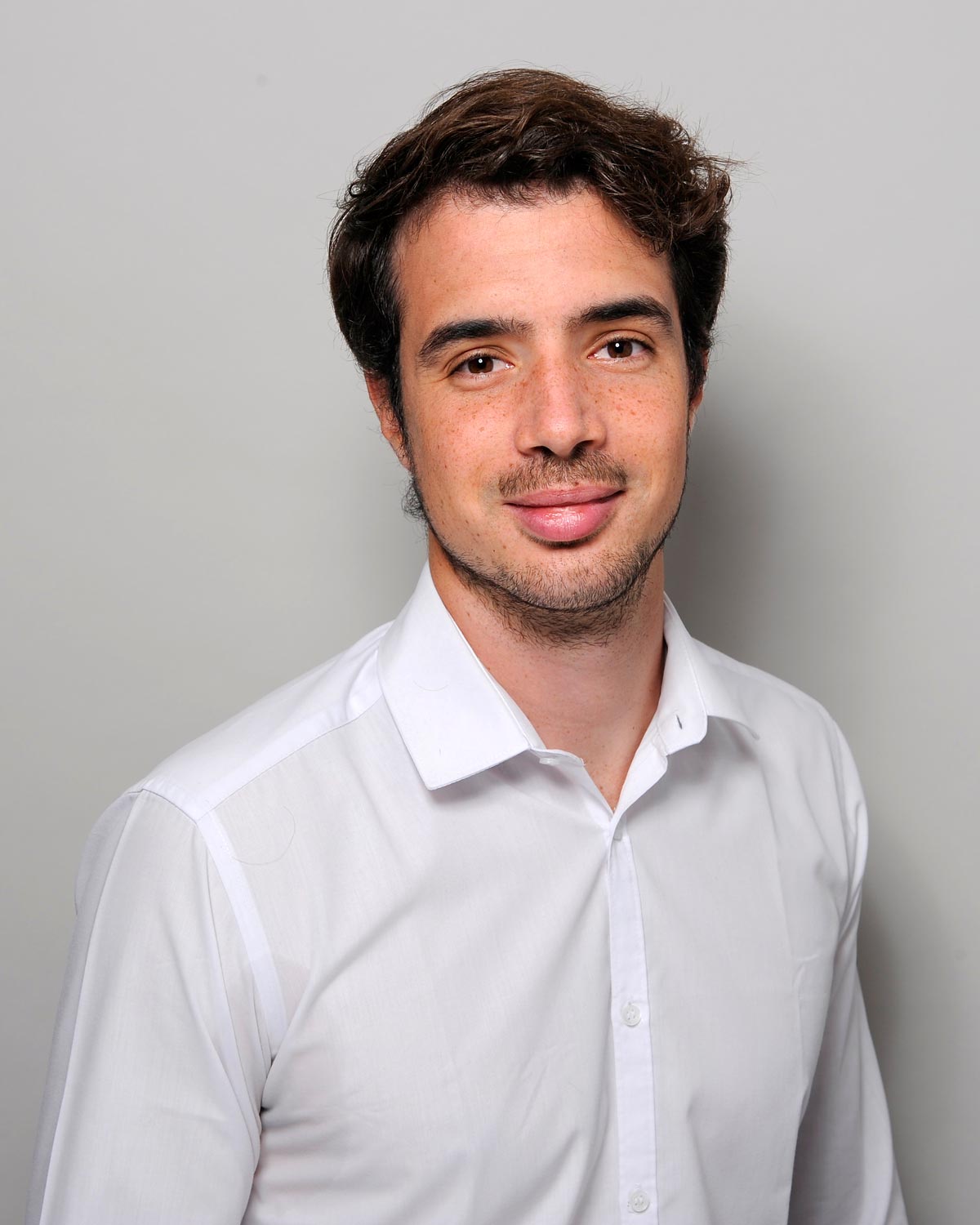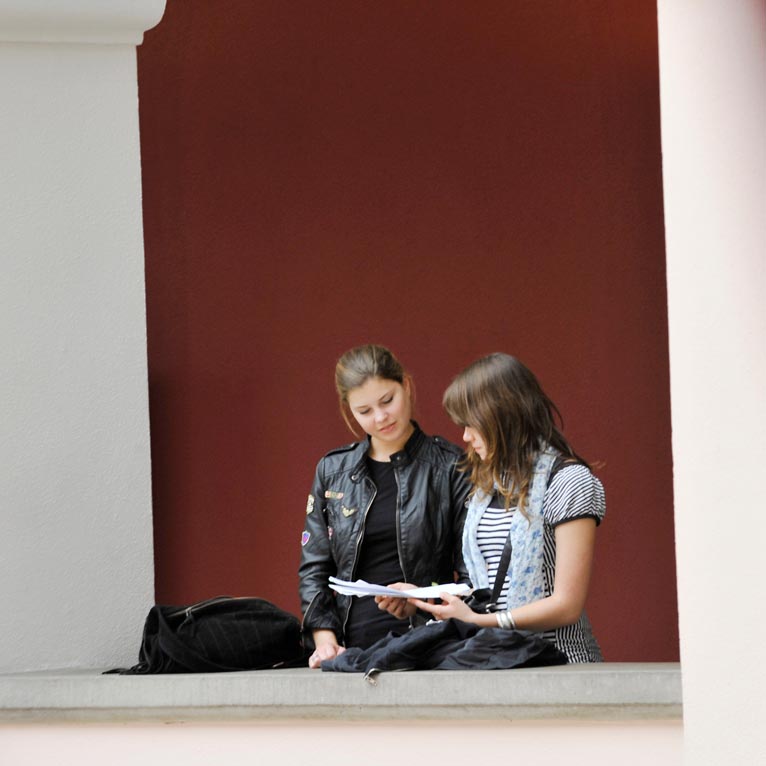Shaping the future of economic research
This fall, Matteo Filippi joined the ranks of UBS Center Scholarship holders at the Zurich Graduate School of Economics. His work explores how industrial policy and demand constraints shape the prospects for industrialization in developing countries. By combining theory with newly available administrative data from Africa, Matteo sheds light on which forms of government support can foster firm growth, strengthen value chains, and ultimately promote broader economic development.
Interview by Maura Wyler
What are the main topics you are working on in your PhD?
My research centers around development and firms, with a focus on how limited demand constrains industrialization in poor countries. In my main PhD project, I study industrial policy as a potential en-gine of demand and industrial deepening, investigating how targeted interventions can stimulate do-mestic value chain development. Beyond industrial policy, my research agenda also considers the role of public procurement as an alternative source of demand supporting industrialization. Methodo-logically, I like to combine theory and data, using empirical findings to motivate new theoretical ques-tions and vice versa. A key part of my work relies on newly available administrative data from Africa, with emerging research labs in countries such as South Africa, Uganda, and Zambia offering exciting opportunities for future projects.
How can your work help us better understand the role of industrial policy?
Economists have long been skeptical of industrial policy, often citing concerns about governments’ ability to pick winners, the risk of rent-seeking and capture, and the possibility of distorting competi-tion or misallocating resources. As a result, research on industrial policy has historically lagged be-hind other areas in development and trade. Yet industrial policy remains a reality in both advanced and developing economies, and there is now a growing trend in economics to take it more seriously, both theoretically and empirically. However, our understanding of which types of government support are effective, who benefits from them, and how they translate into firm-level and aggregate outcomes is still very limited. In my research, I aim to contribute to this rapidly emerging field by leveraging high-quality administrative data from Africa and using economic theory to rationalize and interpret my em-pirical findings.
What keeps you motivated as a researcher?
For me, doing a PhD is a bit like running my own startup — I get to decide what questions to work on, how to spend my days, and which ideas to push forward. I also greatly value the opportunity to present my work to audiences who share my interests and to refine my ideas through discussions with some of the brightest minds in the field. Working in development also means I get to travel, meet people from very different backgrounds, engage in discussions with policymakers, and see economic issues up close – which constantly sparks new ideas. The combination of all this keeps my motivation high: there’s always a new idea to explore and a new project waiting to be started.
What makes the Zurich Graduate School of Economics the right place for your PhD?
What I value most about doing my PhD at the Zurich Graduate School of Economics is the breadth of expertise across the department, with development economics being particularly relevant for my work. This strong foundation is complemented by access to an international network of leading re-searchers, which creates opportunities for collaboration and international exposure. I also benefit from many opportunities to present my work and receive insightful feedback from professors across development, trade, macroeconomics, and industrial organization, which helps me see how my que-stions can be tackled from different angles. Being surrounded by brilliant PhD fellows also creates a stimulating environment where ideas are constantly exchanged and improved. Finally, I greatly value the generous funding opportunities, which are crucial for conducting research projects in poor coun-tries where data access can be costly.
This fall, Matteo Filippi joined the ranks of UBS Center Scholarship holders at the Zurich Graduate School of Economics. His work explores how industrial policy and demand constraints shape the prospects for industrialization in developing countries. By combining theory with newly available administrative data from Africa, Matteo sheds light on which forms of government support can foster firm growth, strengthen value chains, and ultimately promote broader economic development.
Interview by Maura Wyler
What are the main topics you are working on in your PhD?
My research centers around development and firms, with a focus on how limited demand constrains industrialization in poor countries. In my main PhD project, I study industrial policy as a potential en-gine of demand and industrial deepening, investigating how targeted interventions can stimulate do-mestic value chain development. Beyond industrial policy, my research agenda also considers the role of public procurement as an alternative source of demand supporting industrialization. Methodo-logically, I like to combine theory and data, using empirical findings to motivate new theoretical ques-tions and vice versa. A key part of my work relies on newly available administrative data from Africa, with emerging research labs in countries such as South Africa, Uganda, and Zambia offering exciting opportunities for future projects.

Quotes
Awarding top academic talents
The UBS Center is a main funding body for top academic talent at the Zurich University’s Graduate School of Economics.
The UBS Center Scholarships are scholarships awarded every year to outstanding PhD students at the Zurich Graduate School of Economics, run by the Department of Economics at the University of Zurich. Furthermore, by funding new endowed chairs at the Department of Economics, the UBS Center will create additional doctoral positions for talented young researchers beyond the scholarship scheme. This will ensure that the Zurich Graduate School of Economics achieves a critical mass of top young talent to create a leading international graduate school with an attractive research environment. By strengthening the University of Zurich’s position as a destination for young academic talent around the world, the UBS Center also aims to further enhance Switzerland’s position as a top location for education and business more generally. After all, investment in higher education and research is a key factor in preserving and further growing economic prosperity in developed economies over the long term.
The UBS Center is a main funding body for top academic talent at the Zurich University’s Graduate School of Economics.
The UBS Center Scholarships are scholarships awarded every year to outstanding PhD students at the Zurich Graduate School of Economics, run by the Department of Economics at the University of Zurich. Furthermore, by funding new endowed chairs at the Department of Economics, the UBS Center will create additional doctoral positions for talented young researchers beyond the scholarship scheme. This will ensure that the Zurich Graduate School of Economics achieves a critical mass of top young talent to create a leading international graduate school with an attractive research environment. By strengthening the University of Zurich’s position as a destination for young academic talent around the world, the UBS Center also aims to further enhance Switzerland’s position as a top location for education and business more generally. After all, investment in higher education and research is a key factor in preserving and further growing economic prosperity in developed economies over the long term.

Contact
Matteo Filippi is a Ph.D. candidate in Economics at the University of Zurich (UZH). Matteo earned his Bachelor’s and Master’s degrees in Economics (cum laude) from the University of Florence and the University of Turin, and a Master’s in Economics from the Allievi Honors Program at Collegio Carlo Al-berto (with distinction). Matteo has previously worked at the European Central Bank, the Bank of Italy, and as a research fellow at the University of Turin. He currently serves as the main organizer of the Development Lunch Seminar series at UZH. Matteo’s research focuses on development and firms, with a particular emphasis on the role of indus-trial policy as a source of industrialization in demand-constrained countries. His research has been supported by the Unicredit Foundation, Swiss Re Excellence Foundation, the URPP program at UZH, CEPR’s STEG initiative, and Economic Research Southern Africa (ERSA).
Matteo Filippi is a Ph.D. candidate in Economics at the University of Zurich (UZH). Matteo earned his Bachelor’s and Master’s degrees in Economics (cum laude) from the University of Florence and the University of Turin, and a Master’s in Economics from the Allievi Honors Program at Collegio Carlo Al-berto (with distinction). Matteo has previously worked at the European Central Bank, the Bank of Italy, and as a research fellow at the University of Turin. He currently serves as the main organizer of the Development Lunch Seminar series at UZH. Matteo’s research focuses on development and firms, with a particular emphasis on the role of indus-trial policy as a source of industrialization in demand-constrained countries. His research has been supported by the Unicredit Foundation, Swiss Re Excellence Foundation, the URPP program at UZH, CEPR’s STEG initiative, and Economic Research Southern Africa (ERSA).
